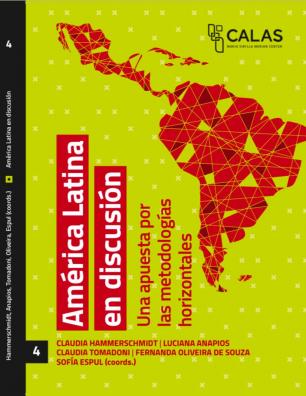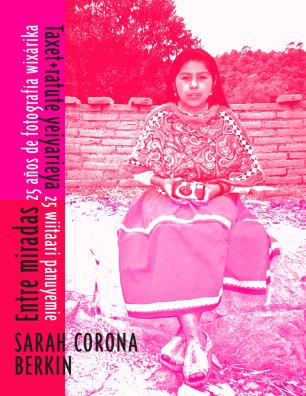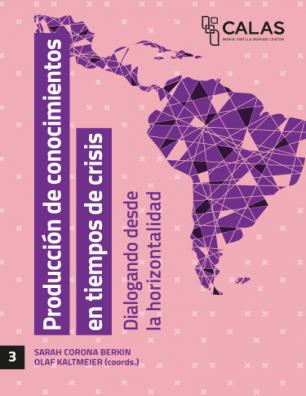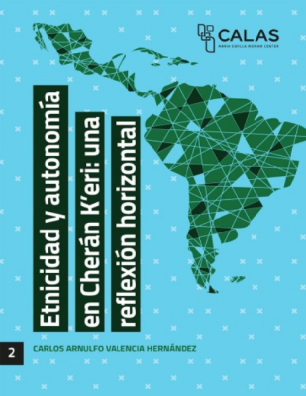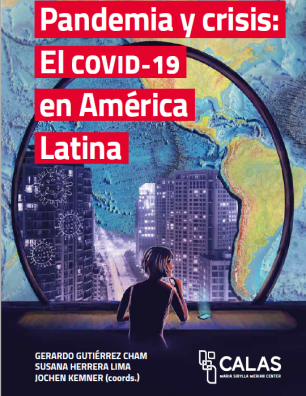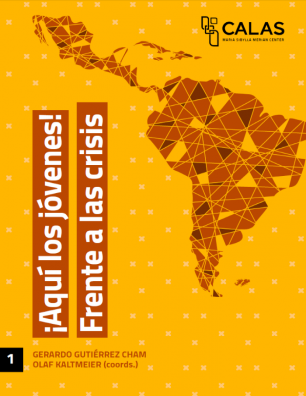Colección CALAS / Editorial de Guadalajara
América Latina en discusión. Una apuesta por las metodologias horizontales
En junio de 2022, la sede Cono Sur y Brasil del Centro Maria Sibylla Merian de Estudios Latinoamericanos Avanzados en Humanidades y Ciencias Sociales (CALAS) convocó a estudiantes e investigadores jóvenes al congreso internacional “América Latina en discusión.
Entre miradas. 25 años de fotografía wixárika
La raíz yeiya significa moverse, en otras palabras, vivir; así el movimiento, la vida y el cuerpo se entretejen. En este libro se acompaña la mirada de la comunidad wixaritari, en donde se observan cambios tanto en los sistemas visuales como en lo social, en las identidades y en los anhelos. Es un trabajo en conjunto que da cuenta de cómo en el recorrido, que comenzó en 1997, se ha transformado la visualidad y hoy, a 25 años de este inicio, se siguen construyendo nuevas formas de ver frente al otro.
Producción de conocimientos en tiempos de crisis: dialogando desde la horizontalidad
¿Cómo generamos conocimiento para afrontar los problemas que hoy nos aquejan? Para responder esta pregunta, este libro explora elementos dialógicos como la escucha, el reconocimiento mutuo, la participación igualitaria en las comunidades científicas o la representación del otro, sus voces y las nuestras. Se reúnen diez contribuciones que formaron parte del congreso que titula a este libro, el cual fue un punto de encuentro entre jóvenes investigadores e investigadores consolidados y de cuyos diálogos pretenden servir como guía para trazar nuevas rutas.
Etnicidad y autonomía en Cherán K'eri: una reflexión horizontal
In 2011, the inhabitants of the town of Cherán (Michoacán), tired of the dispossessions they suffered at the hands of organized crime, spontaneously initiated not only a process of self-defense, but also an unprecedented political project for their self-determination as an original and autonomous P'urhépecha community. This case raises the question that guides this paper: How to understand Cherán's autonomous political project from an ethnic perspective?
Pandemia y crisis: El Covid-19 en América Latina
The outbreak of the coronavirus (COVID-19) has caused an unprecedented multi-crisis. Its consequences are global and all-encompassing, even if they have particularities in the different regions of the world that face it in very unequal conditions. They go beyond a health issue because of the varied and complex repercussions. This volume brings together research from the Social Sciences and Humanities that measure the impacts of the health crisis and governmental measures in Latin America and the Caribbean during the initial phase of the spread of the disease.
¡Aquí los jovenes! Frente a las crisis
In Latin America, 60% of the population is under 30 years of age. This demographic fact, in itself, demonstrates the importance of youth and adolescents in the region. However, the young people represented in public and media discourses are often criminalized, infantilized and shown, in a reductive way, as problematic people or groups destined for consumption.


